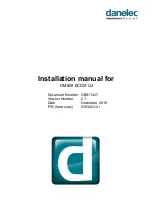
35
GENERIC REVERB INTRODUCTION
Source Reverb Cons
• Require more sends or direct feeds than
Generic Reverb types
• No advantage on composite signals
• Not ideal for moving sources
Sampling Reverb
Sampling reverbs present a variation of the
Source theme: An impulse response is taken
from an actual room based on a specific source
and pick-up position. This "canned room" with
frozen source, pick-up and speaker positioning,
can later be applied to any signal.
From experiments we have found it difficult to
translate a room feeling to speakers, due to
compromises by nature built into the emission
and pick-up process when capturing a room
response. This is especially true with
multichannel formats such as 5.1 and 6.1,
where DSP in simulators can be used to
optimize a virtual room for a specific speaker
configuration.
Currently, no sampling reverbs are available in
TC Reverbs.
Sampling Reverb Pros
• "Organic" or natural feeling
• Some properties of a natural room may be
captured
• Different flavor to simulations
Sampling Reverb Cons
• Little editing possible. Editing often doesn't
sound right
• Difficult to capture sense of space as well as
it may be simulated
• Only one fixed source position per Engine
• Long recall times
• Lower dynamic range and bandwidth than
VSS algorithms
Summary of Contents for REVERB 4000
Page 1: ...REVERB 4000 HIGH DEFINITION REVERB U Us se er r s s m ma an nu ua al l...
Page 2: ......
Page 6: ......
Page 11: ...SIGNAL FLOW 9...















































